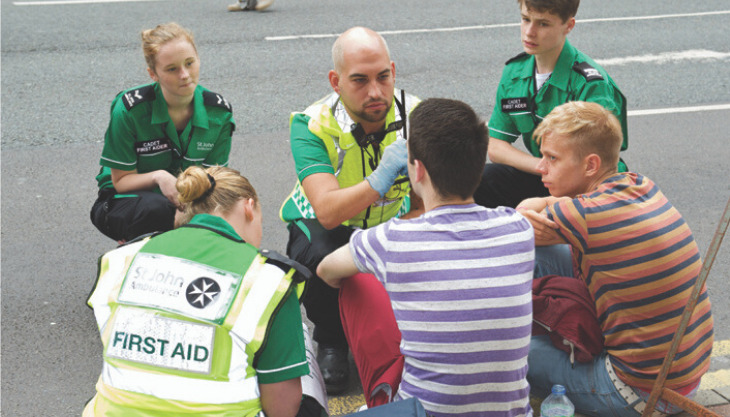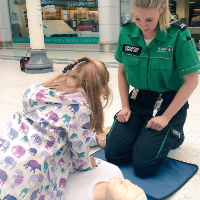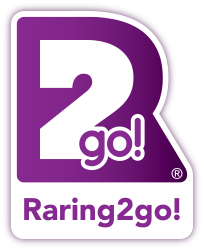St John Ambulance – dehydration & heat exhaustion

 St John Ambulance, the nation’s leading first aid charity has teamed up with Raring2go! to bring you some simple, but life saving, first aid tips – this time: St John Ambulance – dehydration & heat exhaustion
St John Ambulance, the nation’s leading first aid charity has teamed up with Raring2go! to bring you some simple, but life saving, first aid tips – this time: St John Ambulance – dehydration & heat exhaustion
Dehydration happens when someone loses more fluid than they take in. Young children and older people may become dehydrated more easily, so it’s especially important for them to drink plenty of water, especially in warmer weather, when they have a fever or are unwell with vomiting or diarrhoea.
Someone may also become dehydrated after sweating a lot following exercise or playing sport. If left untreated, someone with dehydration can develop heat exhaustion, which is a serious condition caused by loss of body salt and water, so it’s important to make sure they rehydrate themselves with water and rehydration solution as soon as possible.
St John Ambulance – dehydration & heat exhaustion – There are five key things which may indicate that someone may be suffering from dehydration:
- They may complain of headaches and light-headedness
- They may have a dry mouth, eyes and lips
- They may produce small amounts of dark urine
- They may complain of muscle cramps
- They may be confused.
Help them to sit down and give them plenty of fluid to drink. Give them water, but oral rehydration solution will help to replace water as well as salt and other minerals which they’ve lost – you can buy this in sachets from any pharmacy.
 Heat exhaustion is caused by a loss of salt and water from the body, usually through excessive sweating. It develops slowly and usually happens to people who aren’t used to hot, humid weather. People who are unwell, especially with vomiting and diarrhoea, are more likely to get it.
Heat exhaustion is caused by a loss of salt and water from the body, usually through excessive sweating. It develops slowly and usually happens to people who aren’t used to hot, humid weather. People who are unwell, especially with vomiting and diarrhoea, are more likely to get it.
A dangerous and common cause of heat exhaustion is when the body produces more heat than it can cope with. This can happen when someone takes non-prescription drugs, like ecstasy, which can stop the body from regulating its temperature properly.
There are six key things that you may lead you to suspect that someone has heat exhaustion:
- Headache
- Dizziness and confusion
- Loss of appetite and feeling sick
- Sweating with pale clammy skin
- Cramps in the arms, legs and stomach
- Fast, weakening pulse and shallow breathing
Help the person to a cool place and get them to lie down with their legs raised and give them lots of water to drink. You can also give them an isotonic sports drink, or oral rehydration solution, to help replace the salt and fluid they have lost though sweating.
Keep checking their breathing, pulse and whether they can respond to you. Even if they recover quickly, suggest they seek medical advice. If their condition seems to be getting worse, place them into the recovery position and call 999/112 for emergency help.
For those looking for quick, easily accessible first aid information, the St John Ambulance app is available free on smartphones and the website offers demo videos, an interactive game, and lots of free advice. For more information about first aid courses please call 0844 770 4800
For more life saving, first aid tips from St John Ambulance CLICK HERE



